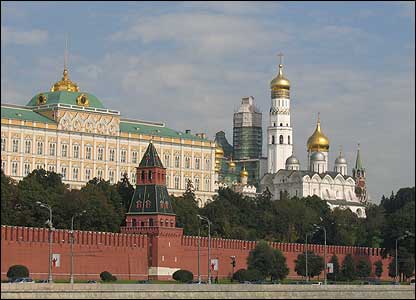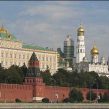
WILL KREMLIN USE 1990s PRIVATIZATIONS TO STRENGTHEN ITS GRIP ON BUSINESS?
Publication: Eurasia Daily Monitor Volume: 4 Issue: 232
By:

Analysts and observers both inside and outside Russia have pointed to President Vladimir Putin’s apparent choice of First Deputy Prime Minister Dmitry Medvedev to be his designated successor as a sign that Kremlin policy, at least in the realm of economics, may be moving toward liberalization. That impression was reinforced by comments made by Putin on December 11, when he told business leaders from the Russian Chamber of Commerce and Industry that the Kremlin does not intend to create “state capitalism.” “We don’t plan to keep state corporations the way they are now,” he said. “After the corporations are stable and standing on their feet, it would be good for them to work in the market.” Putin also promised that the government would protect private enterprise and ensure that state corporations “do not strangle other businesses” (Associated Press, December 11).
However, a bill has been introduced in the Kremlin-dominated State Duma that at least some business leaders believe signals a further increase in state pressure on private industry. Three State Duma deputies, Alexander Lebedev (United Russia), Vladimir Semago (United Russia), and Andrei Samoshin (Justice Russia) have introduced legislation that would impose a one-time 20% tax on profits made from enterprises acquired in the controversial loans-for-shares scheme of the 1990s during the first ten years after those enterprises were acquired.
The online edition of RBK Daily reported that the legislation, if passed into law, would come into force on January 1, 2009. The newspaper quoted Lebedev as saying the tax would be applied only to those companies that bought the enterprises directly through loans-for-shares auctions, not those that acquired the assets subsequently. According to RBK Daily, this means that the tax would not be levied on, for example, the state-controlled natural gas monopoly Gazprom (whose board chairman is none other than Dmitry Medvedev) for its acquisition of the Sibneft oil company in 2005. (Sibneft was originally bought by Boris Berezovsky and Roman Abramovich in a December 1995 loans-for-share auction that, like the other loans-for-shares auctions, are widely believed to have been rigged.) According to the authors of the legislation, the tax will apply to more than 200 large Russian companies, mainly in the fuel and energy, mining, metallurgical, and chemical production sectors, and bring in 1.5 trillion rubles (more than $60 billion) to the federal budget.
RBK Daily reported that Russia’s big business community views the proposed tax as a tax on the most efficient enterprises. “Property owners who acquired enterprises, even at low prices, but during a stage of decline, and managed to raise their capitalization, will be forced to pay more than ineffective proprietors,” the newspaper quoted Sergei Belyakov, deputy head of the tax and budget policy committee of the Russian Union of Industrialists and Entrepreneurs (RSPP), as saying. He added that the proposed tax represents a “discriminatory approach toward taxpayers.”
According to RBK Daily, the RSPP has doubts that the proposed tax will be passed, because it violates the principles that taxes cannot be levied retroactively and that taxpayers cannot be categorized according to how they came into possession of property. Still, some lawyers say the bill could nonetheless win approval. “Knowing how judicial practice has evolved in recent years on taxes – recalling, for example, the extension of terms for tax audits – I would not say categorically that this is a thing that cannot pass,” Valery Tutykhin, a partner with the law firm John Tiner & Partners, told RBK Daily.
The newspaper warned that the passage of the bill would “undoubtedly” have an effect on Russia’s investment climate and reduce the market capitalization of Russian companies. It quoted Alexei Vorobyov, the head of the strategic and macro-economic analysis department of VTB Asset Management, as saying: “The profits received during the years of privatization were long ago invested in production. And resources are needed for the payment of taxes. Moreover, a situation can arise, as with Yukos, in which the sum of tax demands turns out to exceed the capitalization of a company.”
RBK Daily quoted Dmitry Badovsky, an analyst with the Institute of Social Systems, as saying that the state is dealing with the issue of revising the results of 1990s privatization by “strengthening its position in the economy and increasing social expenditures.” According to the newspaper, Badovsky said the fact that a bill calling for a 20% tax on profits made from enterprises acquired through loans-for-shares has been introduced in the State Duma, which is completely controlled by the Kremlin, means that the legislation can be viewed as a “reserve weapon” for subordinating business to the state (RBK Daily, December 14).




